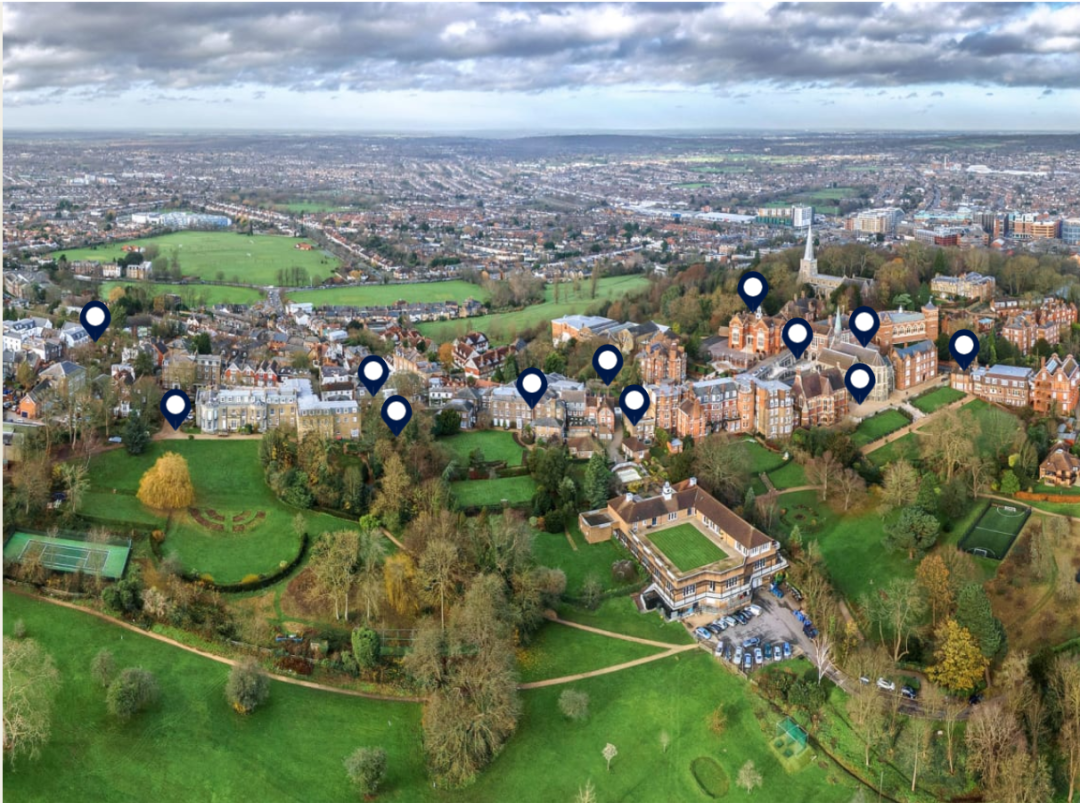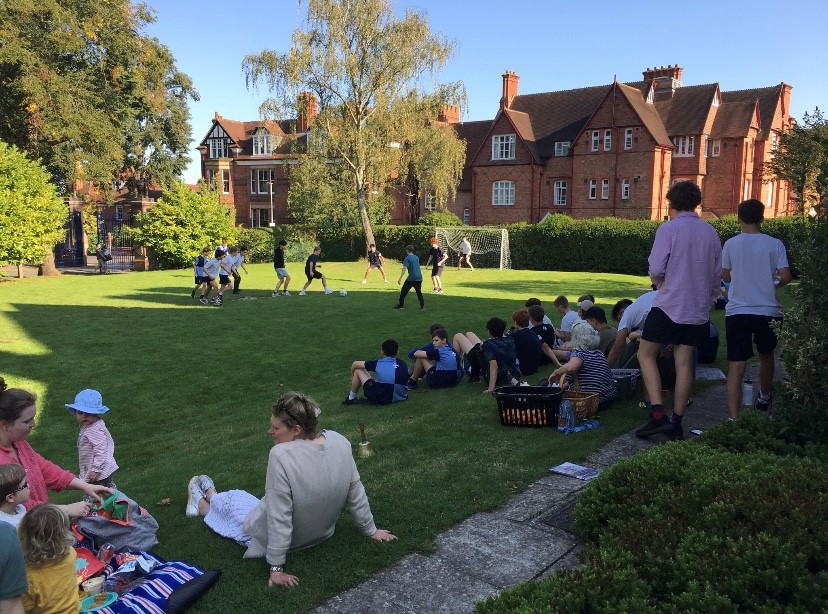当前位置:首页 » 必备常识 » 正文
-
English Version
In-Depth Research Series | The House System of the Public Schools in the UK
Editor’s Notes: The in-depth research series are initiated by KingLead Research Institute. We aim to study the law and inspire practice.
01
The House System is a traditional feature of schools in England. The practice has gone beyond the literal meaning of “residence and building” and its physical feature and has become an important cultural concept in the field of education. The house system originated from the boarding needs of public schools. After school, the students lived in a big house, and specialized personnel were responsible for their daily food and routines, thus forming the house.
However, with the reform and development of public schools, academic achievement is no longer the only goal of education, temperament cultivation had also become an important purpose of running schools. Schools should cultivate not only scholars, but also masculine gentlemen. The change and development of public schools endow the house system with deeper educational significance and turn it into an integral part of British school education.
House can be considered as a sub-unit of a school. It is a smaller community divided within a larger community. Public-school students are assigned to a house upon the time of admission. Houses may compete in many ways with each other, including sports competitions and many other forms. Merit points for behaviour and academic achievement may also be added up for comparison between houses. In modern times, in both day and boarding schools, the word house may refer only to a grouping of pupils, rather than to a particular building.[1]
The smaller within-school structure of the house facilitates this, by promoting personalized care, with more frequent interactions, and lower child-to-adult-care ratios, than within the wider school. It has an important positive influence on students’ character cultivation, behaviour correction, problem solving, ability training and so on. It can help students develop both physically and mentally and form an independent and positive personality.
02
01
Providing Pastoral Care
In boarding schools, a primary purpose of the house system is to provide pastoral care to the students. Pastoral care is an ancient model of emotional, social and spiritual support that can be found in all cultures and traditions.[2] Separated from parents for long periods, children will rely on the school to fulfil their socio-emotional needs, in addition to meeting their basic physical care. The smaller within-school structure of the house facilitates this, by promoting personalized care, with more frequent interactions, and lower child-to-adult-care ratios.
Pastoral care pays great attention to children as independent individuals, give full play to their value, identity, and ability, let them thrive in school, and provide them with the greatest possibility of long-term happiness and achievement in the future.[3] It is also one of the scoring items for the inspection of education quality by ISI, Ofsted and QAA.

Charterhouse’ s pastoral care keyword
Source: Official website of Charterhouse
02
Help Students Form A Good Character
And Develop Well-roundly
Let's see how house membership is obtained.
Pupils are usually assigned to houses randomly, perhaps with the aim of balancing the houses to increase competition. Sometimes the assignment is based on the social and emotional needs of the student and to ensure proper peer mentoring is enhanced with the right fit of students within a house. Traditionally, however, once a pupil has been assigned to a house, any younger siblings he or she has may automatically become members of that house when they arrive at the school, but this varies from school to school. (This tradition sometimes extends to the children of former pupils.) Once a pupil has been allocated to a house they usually stay with that house as they move up through the year groups. Students from all grades, with various talents, abilities, ages, and the natural distribution of gender in coeducation, gather and unite to pursue greater honour of the house. [4]
Indeed, there are a few challenges. Without the power of J. K. Rowling’s magical sorting hat, staff are tasked with ensuring that there is an even representation of abilities and talents throughout the houses. Ideally, pupils should, in any one house, represent a cross-section of the whole school.[4] Creating smaller communities within the larger community where they can make stronger bonds and connections, students can feel closer to each other and to the whole school community. House divides students into multiple social units rather than independent entities. Each house has its own characteristics and themes. Students of different races, nationalities, ages, and academic abilities interact with each other.
According to research, the house can help reduce bullying and other behavioural problems. The school’s academic performance indicators and examination results have also improved. Each student has his own house, to cultivate a strong sense of belonging, so that they can always work hard to guard the reputation of the house. It is centred on gaining acceptance, attention, and support from members of the group as well as providing the same attention to other members. In Abraham Maslow’s hierarchy of needs, belongingness is part of one of his major needs that motivate human behaviour. A higher sense of belonging is often associated with higher achievement. [5]

Harrow School’s Houses
Source: Official website of Harrow School
Such a system develops and maintains a small school atmosphere, within a large school structure. The Houses afford students a smaller, closer community within the school, and broaden the range of activities and support available. Each student’s uniform includes a House tie and House t-shirt, worn during House events. Points are awarded to Houses for winning and placing in competitions. At the end of each academic year, the number of points accumulated by each house is totalled and the ‘winning’ House is recognized. [6]
The house system is also essential for the development of students’ academic and personal potential, which in turn creates a favourable environment for their vigorous growth. House itself and the competition among them give students a sense of identity, belonging and honour, which is of great significance to students’ lifelong development.
A notable feature of house systems is the competition between houses. There are various forms of competition, in addition to sports, there are debates, music, drama and so on. Students’ awards for excellent academic performance and behaviours also be added to the overall score of the house to bring glory to their house. Various activities and competitions will be held regularly within and between houses, and students can fully participate in them and contribute their own strength. Research shows that people who are engaged and able to use their strengths will feel happier over the longer term. Engagement also helps build physical and mental wellbeing and self-esteem. [7]

House - Churchill’s Hall
Source: Official website of Shrewsbury School
In house, junior students look up to the behaviour and actions of senior students, while senior students take care of and support junior ones. The influence of this vertical interaction between high-and low-grade students is far-reaching. While reducing campus bullying and some student behaviour problems, whether it is the help of senior students to junior students or the management assistance of students to teachers, it allows students to communicate more with peers and interact with teachers, so that students can get the chance to develop leadership in the process. Other opportunities to develop leadership skills arise from the patterns established by the house system. Team spirit, brotherhood, and students’ leadership are formed and developed.[1]
03
Important Role in House
The Housemaster’s primary role is leading and running their boarding house. Their top priority is caring for their boarders’ physical and mental well-being, and they do this by getting to know their charges, guiding them daily and offering them support and advice.
House makes close personal coaching and care possible. It is an important link between school and students’ families. Through it, students’ parents can easily keep in touch with their children’s head teachers and housemasters. The role of Housemaster can give students personalized attention and support, and students will perform better in all aspects and are more likely to grow into the best version of themselves only when they feel safe and supported.
Just as a house is not an ordinary dormitory, the housemaster is also different from the dormitory officer. The Housemaster’s primary role is leading and running their boarding house. The Housemaster has a vast range of duties and responsibilities, ranging from the pastoral care of their boarders to everyday basic maintenance, laundry, and organizational tasks. The Housemaster acts as the parent or leader of the house and deals with any problem the boarders may have. The Housemaster additionally may be a teacher, sports coach, cadet forces instructor, or in faith schools a member of the clergy.
The post is almost always residential. Community spirit fosters between the boarders themselves and the Housemaster leading them. Regardless of the name, with each house having an identity, a sense of pride develops for the Housemaster. Many houses are known for certain attributes or characteristics. The Housemaster will have an important part in ensuring the good reputation and image that their house develops.[8]
03
As a place, the house of public schools has become an incubator for students’ character cultivation and ability development to a certain extent. It is an important and effective supplement to classroom education; It is an important innovation in the training methods of boarding school; It is an important site for developing students’ leadership, practising whole person education philosophy, and realizing students' long-term and healthy development.
By allowing students to physically gather and plan students’ leisure time, a small-scale community is formed; By giving professional, intensive and personalized attention, and guidance; by setting up rules, benign competition and teamwork, public schools can render students a sense of belonging, participation, and honour, and develop students’ leadership, team spirit and positive personality.
According to series research, when kids are really excited about school, they are happier, and they tend to learn more. Mental health and strong mentality of students leads to better academic performance and help students reap rewards in many other aspects. As a traditional feature of public schools in England, It is a great reference for learning how to improve students’ academic performance, overall ability, and create a healthier and positive campus environment.
04
[1] “House System.” Wikipedia, Wikimedia Foundation, https://en.wikipedia.org/wiki/House_system.
[2] “Pastoral Care.” Wikipedia, Wikimedia Foundation, https://en.wikipedia.org/wiki/Pastoral_care.
[3] “Wellington College International Tianjin.” Wellington College, https://www.wellingtoncollege.org.uk/wellington-family-of-schools/wccti/.
[4] Tongue, David. “The House System: A Typically British Educational Institution.” Relocate Global, Relocate Magazine, 21 Sept. 2016, https://www.relocatemagazine.com/articles/education-the-house-system-a-typically-british-educational-institution.
[5] Cherry, Kendra. “What Is the Sense of Belonging?” Verywell Mind, Dotdash Publishing Family, 5 Mar. 2021, https://www.verywellmind.com/what-is-the-need-to-belong-2795393.
[6] “院舍制 - Harrow International.” Harrow International, https://www.harrowbeijing.cn/about-cn/philosophy/house-system.
[7] “Engagement and Positive Psychology.” Student Wellbeing | ReachOut Schools, ReachOut Australia, https://schools.au.reachout.com/articles/engagement-and-positive-psychology.
[8] “Housemaster.” Wikipedia, Wikimedia Foundation, https://en.wikipedia.org/wiki/Housemaster.
本篇文章来源于微信公众号:京领新国际
深国交有4大House 属英系命名方式,深度研究英国公学之House制度
76461 人参与 2021年11月01日 15:11 分类 : 必备常识 评论
推荐阅读:
版权声明:“备战深国交网”除发布相关深国交原创文章内容外,致力于分享国际生优秀学习干货文章。如涉及版权问题,敬请原作者原谅,并联系微信547840900(备战深国交)进行处理。另外,备考深国交,了解深国交及计划参与深国交项目合作均可添加QQ/微信:547840900(加好友时请标明身份否则极有可能加不上),转载请保留出处和链接!
非常欢迎品牌的推广以及战略合作,请将您的合作方案发邮件至v@scieok.cn
本文链接:http://www.scieok.cn/post/2479.html




